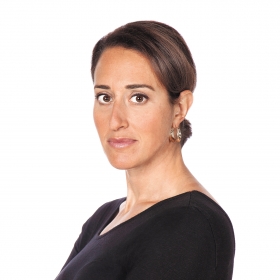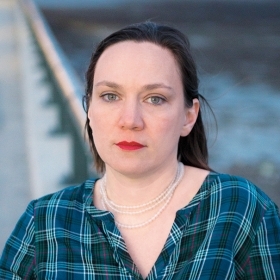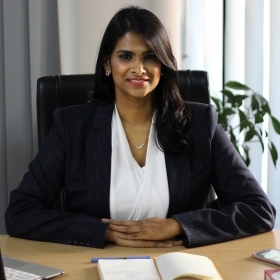Vanessa Bennett ’98
If your daughter takes a class at Dynamo Girl, an after-school program in New York City that empowers girls ages 5 and up through physical activity, one of the activities she might participate in is called a line inversion.

Photo by Izik Mishan
If your daughter takes a class at Dynamo Girl, an after-school program in New York City that empowers girls ages 5 and up through physical activity, one of the activities she might participate in is called a line inversion. Ten girls stand in a line, and their task is to invert the order of the line. No. 1 and No. 10 need to switch, No. 2 and No. 9, and so on. The catch is that the girls are also standing in a taped-off space that is 18 inches wide. The only way to complete the task is for the girls to lean on each other—physically and mentally. To keep from falling outside the boundary as they move past each other, one girl’s hands must go on another’s shoulders, they must spin and duck. They must communicate clearly.
“Some classes, the girls are fantastic at completing the game; other classes, they can’t do it, because they won’t ask for help,” says Vanessa Bennett ’98, a mother of four (three boys and one girl) who started Dynamo Girl in 2015 in response to the lack of opportunities for girls like her daughter who wanted to participate in physical activity. The girls’ struggle with the line inversion doesn’t surprise Vanessa, who admits she shares their fear of failure. “At Wellesley and beyond, I was embarrassed to ask for help. It was shameful to say you couldn’t do it by yourself. And I’m watching these 8-year-old girls plow through this group, not communicate and do it ‘my way,’ knocking each other off balance and not completing the task.”
In each Dynamo Girl session, the objective for the girls—beyond having a blast—is twofold: to get physically strong, developing strength and agility, and to get socially and emotionally strong. The girls jump rope, play football and basketball, and dash through obstacle courses, all while working on taking risks through speaking up and sharing their voices, not worrying about being perfect, and confronting their fear of failure.
After a line inversion gone wrong, for example, Vanessa or one of her seven Dynamo Girl coaches will gather the girls in a circle and facilitate a postmortem. A lot of girls might not have the vocabulary to express what they’re feeling, relying on words like “mad,” “sad,” or “frustrated.” The coach will slide a laminated chart in the middle of the circle with words on it like “ecstatic,” “lonely,” and “used,” and the girls will talk to one another about how they feel. “All of that stuff takes practice and building muscles for it, just like playing sports or lifting weights takes practice,” Vanessa explains. “If you don’t practice over and over, when the time comes, you won’t be able to do it.”
Dynamo Girl is now in seven schools in Manhattan and is rapidly expanding in New York City and beyond. Vanessa says her entrepreneurship is her “own version of what we teach the girls—learning to face the fear of failure and go for it anyway.” The best part? Seeing the impact of the program unfold. “I hear from the parents of Dynamo Girls whose daughters are on the cusp of taking great risks: at the top of mountains, at the sides of a pools, in the wings before going on stage, and the parents say to them—‘You can do this. You are a Dynamo Girl.’”


